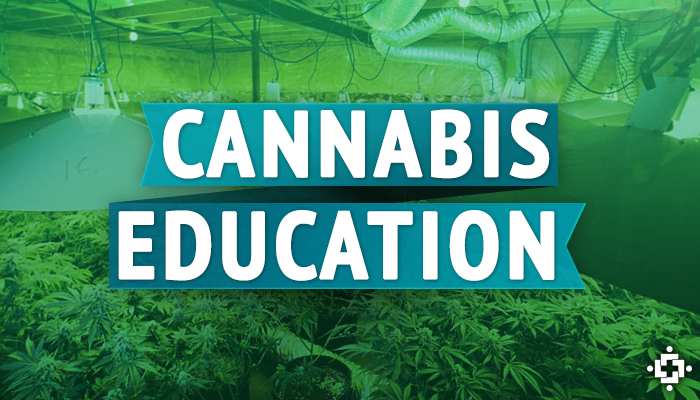
Educational Opportunities Within The Cannabis Industry
Cannabis Education Is A Budding Aspect Of The Industry
It’s no secret that specialized education can be a great way to get in at the ground level of any industry. The rapidly-growing cannabis industry is no different.
“More and more cannabis education opportunities are presenting themselves.”
Founded in 2007, Oaksterdam University has dominated the cannabis education market for years. In turn, an impressive number of industry leadershave endured the Oakland-based college’s curriculum before beginning their career.
Of course, it would be impossible for one school to keep up with the demand for education that lies ahead with the ever-expanding cannabis industry. Furthermore, some have criticized Oaksterdam’s approach to to cannabis education. In turn, more and more cannabis education opportunities are presenting themselves. It should be noted, however, that these schools each have a philosophy all their own.
Hands-On Learning & Cannabis Education
 Oaksterdam’s approach to cannabis education is largely centered around hands-on learning. They offer classes taught by some of the biggest names the cannabis industry has to offer. For instance, their list of faculty members include Paul Armentano, Deputy of the National Organization for the Reform of Marijuana Laws (NORML), and cultivation expert Ed Rosenthal.
Oaksterdam’s approach to cannabis education is largely centered around hands-on learning. They offer classes taught by some of the biggest names the cannabis industry has to offer. For instance, their list of faculty members include Paul Armentano, Deputy of the National Organization for the Reform of Marijuana Laws (NORML), and cultivation expert Ed Rosenthal.
“Topics include everything from cannabis law to advanced cultivation methods.”
Oaksterdam and other universities with a hands-on approach to cannabis education offer a variety of classes. Topics may include everything from cannabis law and the plant’s therapeutic benefits to advanced courses like veganics, greenhouse growing, and cooking with cannabis.
Another school with a focus on hands-on learning is the 707 Cannabis Collegein Humboldt County, CA. Their faculty members include the likes of Kyndra Miller – President and CEO of CannaBusiness Law, Inc., Kevin Jodrey – Cultivation Director for the Humboldt Patient Resource Center, and Samantha Miller – President and Chief Scientist at Pure Analytics, LLC.
Interestingly enough, each of these three 707 Cannabis College faculty members are scheduled to participate in one or more educational panels at The Emerald Cup next month.
E-Learning & The Cannabis Industry
One approach to education that has begun to take hold as of late is e-learning. Numerous schools offer online courses and entire universities have been created around the technology. In fact, estimates say that the e-learning industry is growing at a rate of 10%. This phenomenon has started to catch on in the cannabis community as well.
“We are not a personality-driven institute; we provide a balance of information instead.”– Greta Carter
One school that has emerged with an e-learning approach is the Cannabis Training Institute (CTI). They released a soft launch of their website about a month ago that contains “core cannabis training” modules made in coordination with Americans for Safe Access (ASA). Further, they other an optional ASA/CTI certification for an additional fee.
 In speaking with Greta Carter, CEO of the Cannabis Training Institute (CTI), she said that her online courses will provide work force training for those who wish to distinguish themselves from the pack during their cannabis industry job hunt. Carter stresses that the CTI curriculum is not personality-driven. Instead of one teacher’s opinion, it offers a balance of information.
In speaking with Greta Carter, CEO of the Cannabis Training Institute (CTI), she said that her online courses will provide work force training for those who wish to distinguish themselves from the pack during their cannabis industry job hunt. Carter stresses that the CTI curriculum is not personality-driven. Instead of one teacher’s opinion, it offers a balance of information.
Courses are designed in the form of modules that allow each student to learn at their own pace. The Cannabis Training Institute (CTI) plans to release nine more modules each month. They will offer 300 courses by the end of their second year. Further, Carter hopes that they will be able to earn accreditation within 2-3 years time.
What Is The Future Of Cannabis Education?
State’s throughout the US are passing cannabis legislation with an increased success rate. Further, the most recent Gallup Poll determined that 58% of Americans believe cannabis should be legal.
With that said, It seems obvious that universities tailored towards cannabis education will continue to flourish as policies regarding the plant change over time. The increased acceptance for cannabis is sure to encourage more people to enroll in courses that teach about the plant.
Furthermore, it is not irrational to consider the possibility of larger universities offering courses that teach about cannabis, particularly if the FDA ever reclassifies it under the Controlled Substances Act. Universities would then be free to conduct research on the plant, which I imagine would entice a few more college freshman to pay attention in their chemistry and botany courses.
Americans for Safe Access (ASA) has a mission to ensure safe and legal access to cannabis (marijuana) for therapeutic uses and research. ASA works with our grassroots base of over 50,000 members to effect change …
